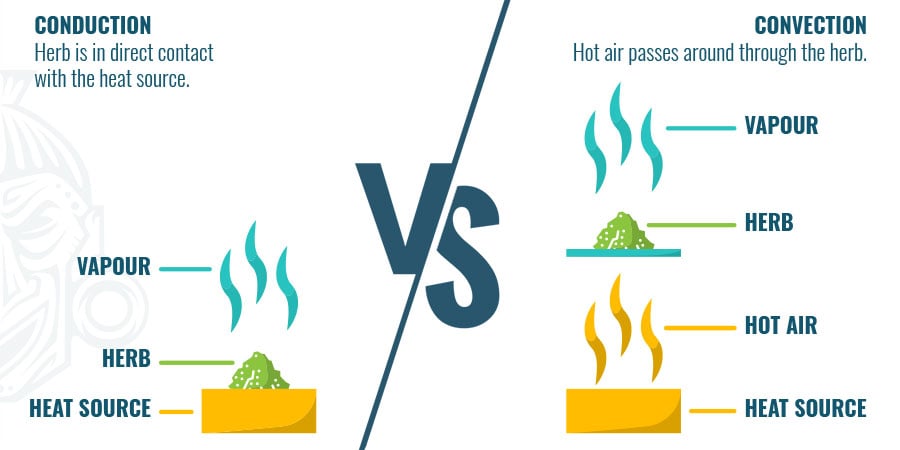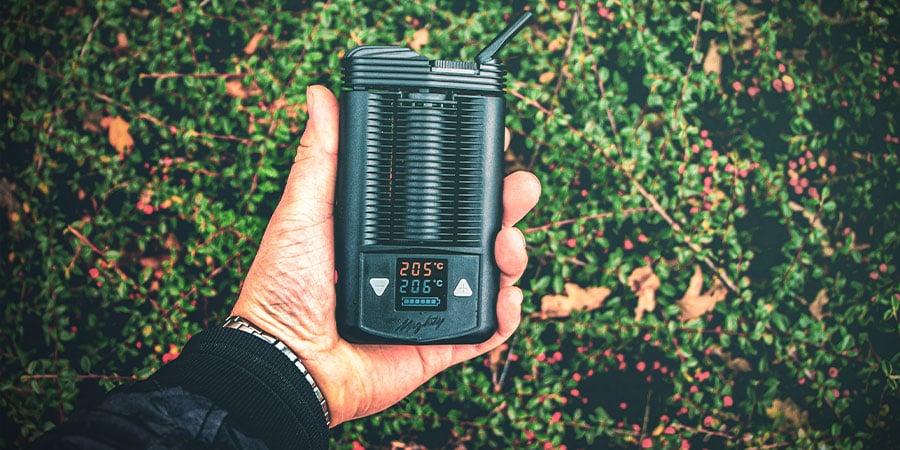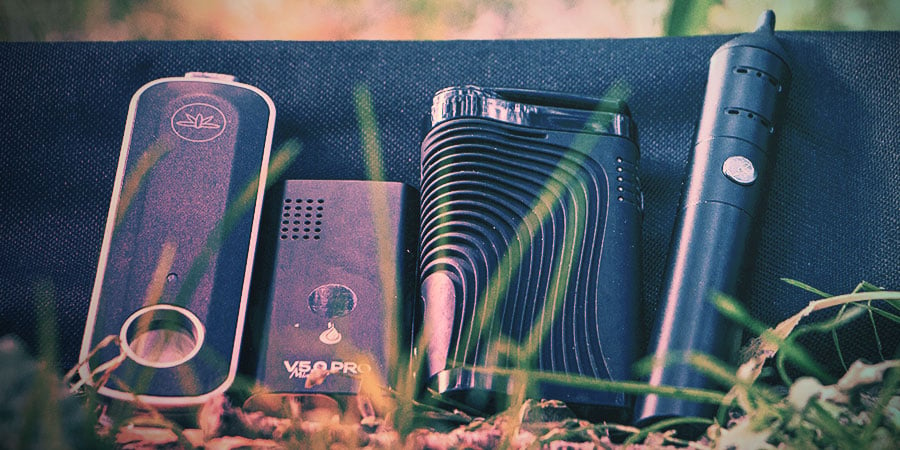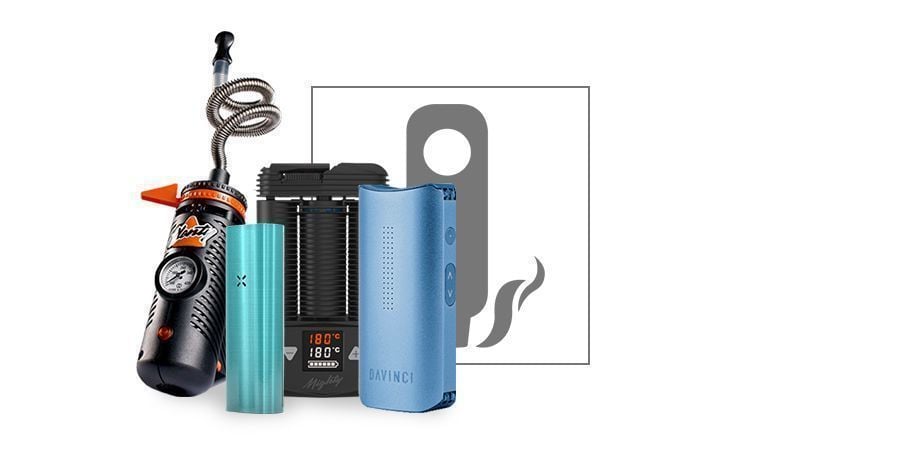-
Seedshop
-
Feminized
Cannabis seeds -
Autoflowering
Cannabis Seeds -
Regular
Cannabis Seeds -
F1 Hybrid
Cannabis Seeds -
CBD
Cannabis Seeds -
Zamnesia
Cannabis Seeds
-
Top 10’s
- Top 10 Feminized Seeds
- Top 10 Autoflowering Seeds
- Top 10 Regular Seeds
- Top 10 USA Cannabis Strains
- Top 10 Zamnesia Seeds
-
Favourites
- Beginner Strains
- Below 1% THC
- Classic Cannabis Strains
- Cup Winners
- F1 Hybrids
- Fast-Flowering Strains
- High CBD Strains
- High THC Strains
- Mix Packs
- Zamnesia Exclusive Collabs
-
-
Headshop
-
Vaporshop
- Spare Parts & Accessories
- AirVape X
- AirVape XS GO (2021)
- Arizer Air MAX
- Arizer Extreme Q
- Arizer Solo 2
- Arizer V-Tower
- Arizer XQ2
- Boundless CFC 2.0 Vaporizer
- Boundless CFX
- Boundless TERA (V3)
- CRAFTY+
- DaVinci IQ2
- DaVinci IQC
- DaVinci MIQRO
- Dr. Dabber Boost EVO
- Dr. Dabber Stella
- DynaVap Omni 2021
- DynaVap VapCap "M" PLUS 2023
- DynaVap VapCap 'M' 2021
- DynaVap VonG (i) Titanium
- Dynavap The "B" Series
- Eagle Bill
- Firefly 2+
- Flowermate Aura
-
Healthshop
-
Smartshop
-
Shroomshop
-
Growshop
-
Seedshop
All CategoriesSeedshop
-
Vaporshop
All CategoriesVaporshop
- Top 10 Vaporizers
- Spare Parts & Accessories
- AirVape X
- AirVape XS GO (2021)
- Arizer Air MAX
- Arizer Extreme Q
- Arizer Solo 2
- Arizer V-Tower
- Arizer XQ2
- Boundless CFC 2.0 Vaporizer
- Boundless CFX
- Boundless TERA (V3)
- CRAFTY+
- DaVinci IQ2
- DaVinci IQC
- DaVinci MIQRO
- Dr. Dabber Boost EVO
- Dr. Dabber Stella
- DynaVap Omni 2021
- DynaVap VapCap "M" PLUS 2023
- DynaVap VapCap 'M' 2021
- DynaVap VonG (i) Titanium
- Dynavap The "B" Series
- Eagle Bill
- Firefly 2+
- Flowermate Aura
- Flowermate Cap Pro
- Flowermate Slick
- Flowermate V5.0S Pro
- G Pen Connect
- G Pen Elite II
- G Pen Micro+
- G Pen Pro
- G Pen Roam
- Hydrology9 Vaporizer
- Hyer Big-E Rig
- MIGHTY
- MIGHTY+
- PAX Mini
- PAX Plus
- PLENTY
- Pax 3 Vaporizer
- Puffco Peak PRO Smart Rig
- Puffco Peak Smart Rig
- Puffco Plus
- Storm Vaporizer
- The Proxy (Puffco)
- VOLCANO CLASSIC
- VOLCANO HYBRID
- Vape-Lifter
-
Smartshop
All CategoriesSmartshop
- Top 10 Smartshop
- Zamnesia Gift Cards
- After Party
- Aphrodisiacs
- Aromatherapy
- Blue Lotus
- CBD Vape Juice
- Capsule Machines
- Crystals, Gemstones & Minerals
- Dream Herbs
- Drug Tests
- Extracts
- Happy Caps
- Herbal Tea
- Herbs & Seeds
- Incense
- Kanna
- Kratom
- LSA Seeds
- Mescaline Cacti
- Microdosing
- Nootropics
- Relaxing
- Salvia divinorum
- Smart Seeds
- Stimulants
- Supplements
- Tinctures
- Vape Herbs
-
TRIBE
All CategoriesTRIBE
- My Membership
- Spend Gift Points
- Exclusive products
- Earn Extra Gift Points
-
TRIBE
- Early Access
- Refer a Friend
- Information
-
TRIBE
-
Language
 United States
United States
Friday, 18 April and Thursday, 24 April 2025*
How Do Weed Vaporizers Work?
For many, vaporizing has become the ultimate way to get high. It‘s healthier, smoother and saves money. But what‘s actually going on in these little devices? How is the vapour produced?
Over the past decade, vaping has become the choice method of cannabis consumption for millions of stoners around the world. If you're not the type to keep up with new technology, you might be wondering what all the hype is about. After all, what do they get from vaping that you can't get from the old fashioned way? There's more to the answer than you might think.
HOW DOES A VAPORIZER WORK?
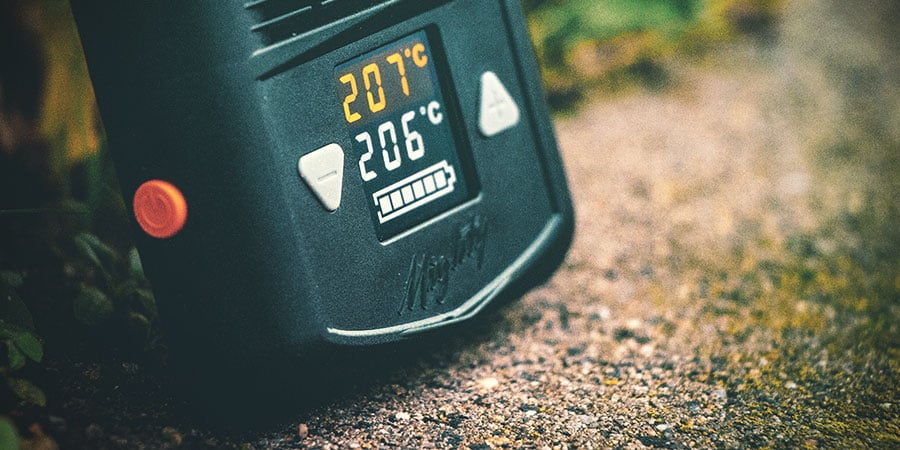
Before we start that discussion, though, we need to go over how they work. Whether they use dry herb or concentrates, vaporizers heat their contents to a specific temperature to create vapor for you to inhale. Rather than the smoke that comes with, well, smoking, this vapor is much kinder on the lungs.
Besides heating to a lower temperature, vaping carries far fewer unwanted substances to your lungs than smoking a joint. When you smoke, weed heats up to around 538ºC (1000ºF), whereas vaping heats marijuana to a much more reasonable 140–220ºC (285–428ºF) range.
DIFFERENT TYPES OF VAPORIZERS
Up to this point, every reputable vape you'll find on the market shares the aforementioned characteristics. The divide forms, however, when we discuss how the weed is heated up. As far as dry-herb vapes go, "conduction" and "convection" are the two terms you'll hear getting thrown around. They accomplish the same goal, but there are some key distinctions between them.
CONDUCTION HEATING
In short, conduction heating puts your weed in direct contact with the heating element. If this sounds simple and straightforward, that's because it is.
• Pros
You should be able to hit these vapes pretty much straight out of the box. You also probably paid less for that box to start with, given that these vapes are usually more simple and streamlined.
Because they don’t have a lot of fancy features, they’re usually pretty easy to operate. Moreover, conduction heating usually allows for bigger clouds.
• Cons
Simplicity, as always, comes with drawbacks. For one, when weed is in direct contact with the heating element, you run the risk of combustion. This means a less clean hit, and greater waste. Even when they're working properly, conduction vapes tend to heat weed unevenly, so you have to rearrange your bowl to fully enjoy it.
Moreover, conduction heating tends to be less precise, although this can make things more simple to operate for beginners.
• Examples Arizer Air 2, Storm, Davinci IQ, Boundless CFC 2.0
CONVECTION HEATING
As opposed to their conduction peers, convection vapes heat up herb indirectly by circulating hot air through it. This is accomplished by putting a screen of sorts between the weed and the heat source.
• Pros
This separation offers quite a few benefits, not the least of which is even heat distribution. When you don't have to worry about some of your weed burning while the rest remains untouched, it makes the whole experience much more enjoyable.
Furthermore, convection heating results in cleaner, smoother hits and less waste. Given their sophisticated heating tech, it’s not uncommon for these vapes to be more involved than conduction. Advanced temperature adjustment controls and other stylish enhancements are popular among these vapes.
• Cons
There aren't many drawbacks with these vapes, but nothing is perfect. Because of the extra step in their design, convection vapes often come at a premium. Along with that, given the herb–heat division, you'll have to wait a bit to take your first hits.
When you do, you may not get as strong of a cloud as you would with conduction. Moreover, the sophisticated nature of these vapes can make them more difficult to operate for beginners.
• Examples Volcano Hybrid and Classic, Boundless CFV, Firefly 2+
HYBRID HEATING
As one could guess from the name, hybrid vapes utilise a mix of both heating methods. Air flows through the material to heat your weed evenly, but a heating element still comes into direct contact with the herb to ensure nice hits.
• Pros
Because of this heating synergy, you end up getting larger clouds, with less risk of combustion than with pure conduction vapes. This combined effort also leads to these vapes being competitively efficient, lasting longer off one charge than many vapes in the other categories.
• Cons
While some prefer to vape at higher temperatures, those with more sensitive lungs might have an issue with these devices. This is simply due to them having two heating mechanisms going at once. They're designed to avoid overheating, but be sure to keep an eye on the temperature.
Beyond that, the only other issue is an escalated price point as a result of complex design.
• Examples MIGHTY
WHAT ARE THE COMPONENTS OF A VAPORIZER?
No matter what you choose, you'll want to get familiar with the main components of a vape. Regardless of heating method, a dry-herb vape will always have an herb chamber and mouthpiece. They're both self-explanatory; the former is equivalent to a bowl in a pipe, and the mouthpiece is where you inhale. The mouthpiece will also often serve as the cover for the herb chamber.
Of course, the real star of the show is the battery, which can either be fixed or removable depending on your vape. They function similarly, with the main difference being that the latter requires you to remove the battery and charge it separately from the device.
Apart from that, fixed battery vapes tend to be more convenient and boast more unconventional designs. On the other hand, if you run into any battery issues, you'll have to replace the whole device. Removable battery designs, in contrast, face design limitations while staying functional through most battery issues.
There's no single solution to everyone's vaporizer needs, but one of these types of vaporizers is bound to suit your lifestyle better than the others. Happy vaping!

- France
- Germany
- International
- Italy
- Netherlands
- Spain
- United Kingdom
- United States
You might also like
-

 5 min
14 June 2022
The Top 10 Best Vaporizers
Whether you're looking for your first vaporizer or want to upgrade your current device, Zamnesia has you covered. Check out our list of the top 10 vaporizers below, and order your favorite from the Za ...
5 min
14 June 2022
The Top 10 Best Vaporizers
Whether you're looking for your first vaporizer or want to upgrade your current device, Zamnesia has you covered. Check out our list of the top 10 vaporizers below, and order your favorite from the Za ...
-
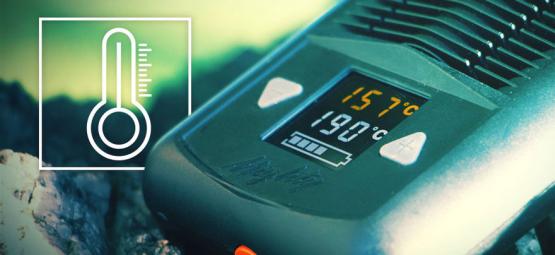
 5 min
14 August 2019
The Ultimate Guide To Vaping Temperatures
Vaping is not rocket science, but sometimes it can be hard to know all the different temperatures for all the various vape-able products. Therefore, we provide you with the ultimate guide to vaping te ...
5 min
14 August 2019
The Ultimate Guide To Vaping Temperatures
Vaping is not rocket science, but sometimes it can be hard to know all the different temperatures for all the various vape-able products. Therefore, we provide you with the ultimate guide to vaping te ...
-

 3 min
27 March 2019
The Advantages of Vaping: Why It's The Smarter Choice
It may not come as a surprise: vaporizers are slowly becoming the ingestion method of choice—even overtaking the joint. Vaporizers are on the rise, and there are many good reasons behind it. ...
3 min
27 March 2019
The Advantages of Vaping: Why It's The Smarter Choice
It may not come as a surprise: vaporizers are slowly becoming the ingestion method of choice—even overtaking the joint. Vaporizers are on the rise, and there are many good reasons behind it. ...
-

 2 min
14 September 2018
Why Vaporize: Top 5 Benefits Of Vaping
Vaporizers offer some attractive benefits over smoking, while still creating the same pleasurable experience. The following are our top 5 benefits of vaping! ...
2 min
14 September 2018
Why Vaporize: Top 5 Benefits Of Vaping
Vaporizers offer some attractive benefits over smoking, while still creating the same pleasurable experience. The following are our top 5 benefits of vaping! ...
Categories
-
Seedshop
- Feminized Cannabis Seeds
- Autoflowering Cannabis Seeds
- Regular Cannabis Seeds
- F1 Hybrids
- CBD Seeds
- Zamnesia Seeds
- Top 10 Autoflowering Seeds
- Top 10 Regular Seeds
- Top 10 USA Cannabis Strains
- Top 10 Zamnesia Seeds
- Top 10 Feminized Seeds
- Beginner Strains
- Below 1% THC
- Classic Cannabis Strains
- Cup Winners
- F1 Hybrids
- Fast-Flowering Strains
- High CBD Strains
- High THC Strains
- Mix Packs
- Zamnesia Exclusive Collabs
- Amnesia Seeds
- Blueberry Seeds
- Cheese Seeds
- Diesel Seeds
- Gorilla Seeds
- Haze Seeds
- Kush Seeds
- Purple Seeds
- Skunk Seeds
- White Widow Seeds
- Zamnesia Seeds
- ACE Seeds
- Advanced Seeds
- Amsterdam Genetics
- Anesia Seeds
- Auto Seeds
- Barney's Farm
- Big Buddha Seeds
- Bomb Seeds
- BSB Genetics
- BSF Seeds
- Buddha Seeds
- Bulldog Seeds
- Cali Connection
- Cannarado Genetics
- CannaBioGen
- CBD Crew
- CBD Seeds
- Compound Genetics
- The Dank Seeds
- Dark Horse Genetics
- Delicious Seeds
- Devil Harvest Original
- Dinafem
- DNA Genetics
- Doctor's Choice
- Dr. Underground
- Dutch Passion
- Elite Seeds
- Eva Seeds
- Exotic Seed
- Expert Seeds
- FastBuds
- Female Seeds
- Fenocan
- Flash Auto Seeds
- French Touch Seeds
- Garden of Green
- GeneSeeds
- Genehtik Seeds
- G13 Labs
- Grass-O-Matic
- Greenhouse Seeds
- Grow Your Own (DNA)
- Growers Choice
- Homegrown Fantaseeds
- House of the Great Gardener
- Humboldt Seed Company
- Humboldt Seed Organization
- Kalashnikov Seeds
- Kannabia
- The Kush Brothers
- Light Buds
- Little Chief Collabs
- Medical Seeds
- Ministry of Cannabis
- Mr. Nice
- Nirvana Seeds
- Original Sensible
- Paradise Seeds
- Perfect Tree
- Pheno Finder
- Philosopher Seeds
- Positronics Seeds
- Purple City Genetics
- Pyramid Seeds
- Rare Dankness
- Reggae Seeds
- Reserva Privada
- Resin Seeds
- Ripper Seeds
- Royal Queen Seeds
- Sagarmatha Seeds
- Samsara Seeds
- Seedstockers
- Sensation Seeds
- Sensi Seeds
- Serious Seeds
- Silent Seeds
- Soma Seeds
- Spliff Seeds
- Strain Hunters
- Sumo Seeds
- Super Sativa Seed Club
- Super Strains
- Sweet Seeds
- T.H. Seeds
- Top Tao Seeds
- Vision Seeds
- VIP Seeds
- White Label
- World Of Seeds
- Zativo Seeds
- Seed Banks
-
Headshop
-
Vaporshop
-
Healthshop
-
Smartshop
- Top 10 Smartshop
- Zamnesia Gift Cards
- After Party
- Aphrodisiacs
- Aromatherapy
- Blue Lotus
- CBD Vape Juice
- Capsule Machines
- Crystals, Gemstones & Minerals
- Dream Herbs
- Drug Tests
- Extracts
- Happy Caps
- Herbal Tea
- Herbs & Seeds
- Incense
- Kanna
- Kratom
- LSA Seeds
- Mescaline Cacti
- Microdosing
- Nootropics
- Relaxing
- Salvia divinorum
- Smart Seeds
- Stimulants
- Supplements
- Tinctures
- Vape Herbs
-
Shroomshop
-
Growshop
- Top 10 Growshop
- Top 10 Plant Seeds
- All Seeds
- Cacti
- Chili & Pepper Seeds
- Companion Plants
- Edible Plant Seeds
- Exotic Seeds
- Flower Seeds
- Fruit Seeds
- Herb Seeds
- Interior Plant Seeds
- Microgreens
- Psychoactive Plant Seeds
- Sprouting
- Vegetable Seeds
- Wellness Plant Seeds
- After Harvest
- Climate Control
- Fertilizer
- Grow Tents
- Harvest, Dry & Cure
- LED Grow Lights
- Plant Seeds
- Propagation
-
Merchandise
-
Sale section
Account
Information
Our Offers
Our website won't work without these cookies activated. Therefore functional cookies can't be disabled.





















